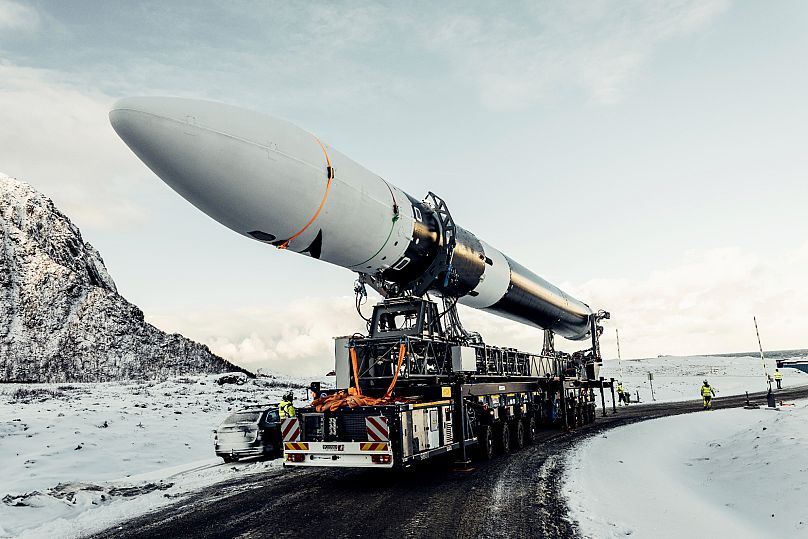The German company said it could conduct the test flight later in the week but another date hasn't yet been set.
A private European aerospace company has cancelled its attempt to launch the first test flight of its orbital launch vehicle from Norway.
Unfavourable winds meant that the 'Spectrum' rocket couldn't be launched from the island of Andøya in northern Norway, Munich-based Isar Aerospace said.
The launch is subject to weather, safety and range infrastructure.
The company said it could conduct the test flight later in the week but another date hasn't yet been set.
The 28-metre 'Spectrum' is a two-stage launch vehicle designed for small and medium-sized satellites.
The company has largely ruled out the possibility of the rocket reaching orbit on its first complete flight, saying that it would consider a 30-second flight a success.
Isar Aerospace aims to collect as much data and experience as possible on the first integrated test of all the systems on its in-house-developed launch vehicle.
The startup, which says it has raised more than €400 million in capital, hopes to build up to 40 launch vehicles per year in the future at a plant outside Munich.
The launch vehicles are all to be used for putting satellites into orbit.
Isar Aerospace is separate from the European Space Agency (ESA), which is funded by its 23 member states.
ESA has been launching rockets and satellites into orbit for years, but mainly from French Guiana, an overseas department of France in South America, and from Cape Canaveral in Florida.












